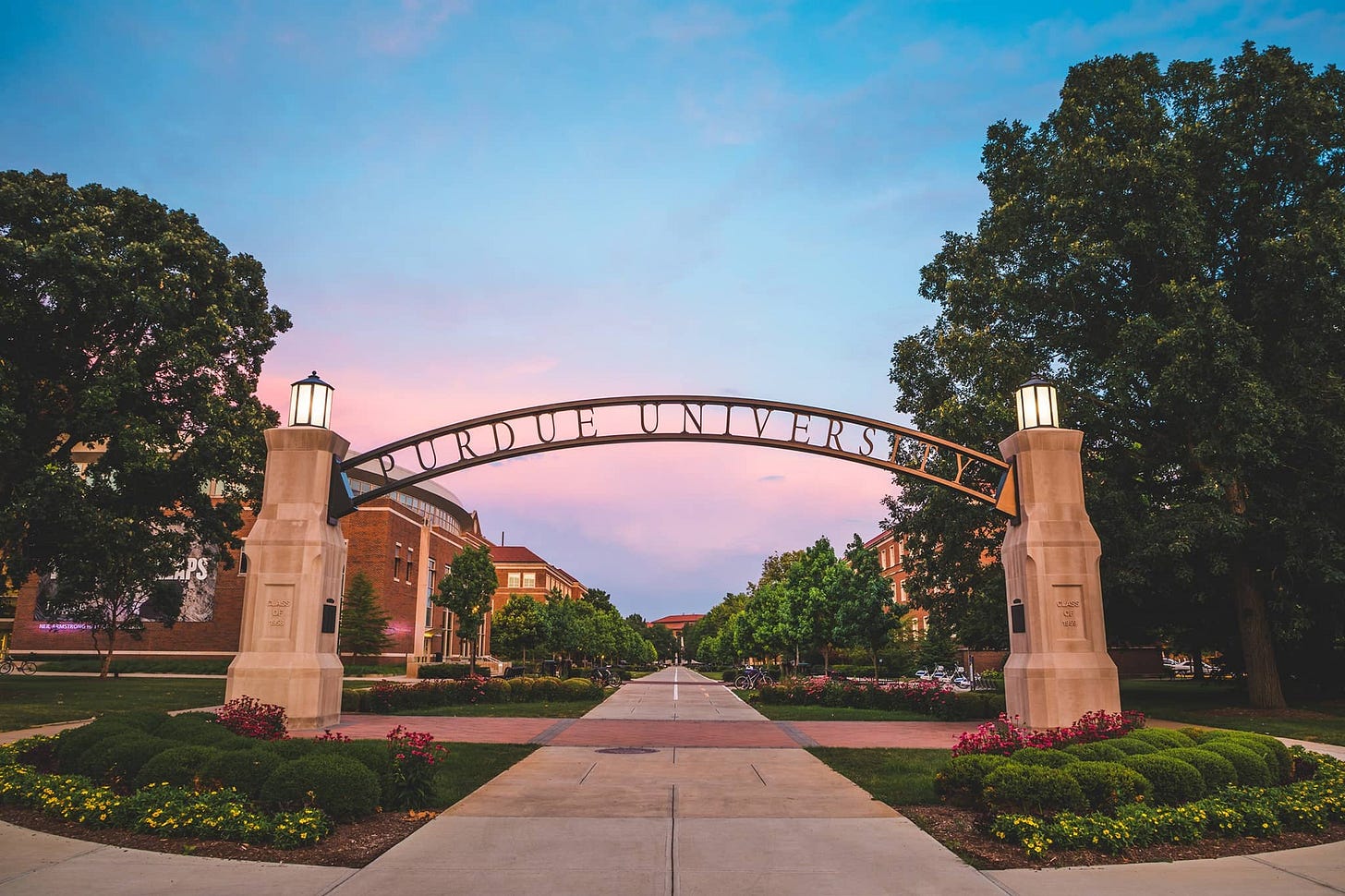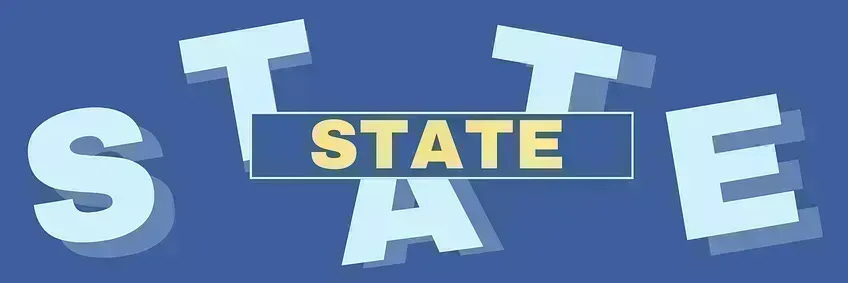Campbell's Catch Up: July Update
Degree programs cut at Purdue, new laws for our schools, cuts to pre-K assistance and more.
83 Degrees At-Risk Across Purdue Campuses
On June 30, the Commission for Higher Education (CHE) announced that more than 400 degree programs across six of Indiana’s public universities would be eliminated, suspended or merged. This announcement follows a clause slipped into the state budget at the last minute that sets a minimum threshold of graduates for all degree programs. The public did not get the opportunity to testify on this measure.
Seven programs will be affected at Purdue’s main campus, but 57 programs at Purdue Fort Wayne (PFW) will be affected. Programs impacted include economics, secondary education, finance and three engineering disciplines. I was especially shocked to see special education degrees on the statewide list.
This is an overreach of government into higher education, echoing a dangerous national trend. The majority isn’t outright controlling students' education, but they’re restricting it, which achieves the same goal. Students should be able to study whatever they choose, especially since they’re paying hundreds of thousands of dollars for it.
When I got my master's in audiology at Purdue, it was a relatively small program. But the size of the program didn’t matter. It was offered because students were interested, and even though the discipline is small, audiologists provide essential services.
Our public university is arguably our state’s greatest strength. Purdue is globally recognized. But to continue their record of success, Purdue must be a great place to work and study. The General Assembly has continued to undercut Purdue’s successes with tenure reviews, monitoring instruction, and now eliminating degree programs. It will get harder for our public universities to pitch themselves to out-of-state students and the nation’s top researchers. For the party of small governance, this is a gross overreach into students' academic opportunities.
To read the full list of programs at risk across Indiana’s public universities, click here.
BMV Will Host Public Hearing About Eliminating Gender Changes on IDs
Following an executive order from Gov. Braun, Indiana’s state government must “respect the biological dichotomy between men and women.” Gov. Braun stated that the matter of changing your gender on a birth certificate or driver’s license would be left to the court. A lawsuit to preserve gender change requests was filed by the American Civil Liberties Union (ACLU). The lawsuit is moving through the courts, but the executive branch is moving forward.
This month, the BMV will host a public hearing on eliminating gender changes on driver’s licenses. The public hearing will be at 9 a.m. on July 22 at the Indiana Government Center South, Conference Room 4+5, Wabash Hall (402 W. Washington St., Indianapolis, IN 46204).
If you’re unable to attend in person, the BMV is also accepting public comments until July 18. Public comments can be emailed to BMVLegal@bmv.in.gov or mailed to the following address:
LSA Document #25-321 Credential Documentation Requirements
Kevin Kolbus
Indiana Government Center North
100 North Senate Avenue, Room N404
Indianapolis, IN 46204
If you need any additional assistance, please reach out to h26@iga.in.gov.
Law Changes for Our Public Schools Effective This Month
Each year, some of the bills passed during the legislative session go into effect on July 1. Out of the 247 bills that will become law this year, a good handful of them affect K-12 public education. Here’s a quick breakdown of the changes coming to our West Lafayette schools:
School Funding
Even with the $2 billion shortfall, our public schools were spared from cuts in the state budget. Public schools will receive a 2% average increase, or $640 million, in new funding. I’m thankful our schools will receive an increase, but they need a 5% to 6% increase to keep up with inflation. Simultaneously, our public schools could lose an estimated $744 million in property tax revenue under Senate Enrolled Act 1. These losses could balance out or overwhelm the funding increase our schools will receive.
Literacy Scores
In 2023, one in five third graders struggled to read at their grade level. The state legislature debated solutions to our literacy crisis, and the majority implemented strict retention policies. After a law passed this session, second and third graders will get two chances to retake their IREAD exam before being held back, and some English language learners will be exempt from retention.
Math Proficiency
Students from kindergarten through second grade will be screened each year for math readiness. This screening will help our educators identify students who are struggling with numbers and computation. These students will receive additional support and intervention. Middle schoolers who are eligible for high-ability math classes will be automatically enrolled.
Chronic Absenteeism
Post-pandemic, we’ve seen skyrocketing rates of school absences. Roughly 18% of our students are “chronically absent,” meaning they miss at least 18 days of school. To rein in chronic absenteeism, the Indiana Department of Education will have to issue a clear, statewide attendance definition, guidance for monitoring student participation and a list of best practices for school districts. Local prosecuting attorneys can also hold intervention meetings with parents to help improve a student’s attendance.
Partisan School Board Elections
School board elections are now partisan, meaning candidates will run as Democrats, Republicans or Independents. They also have the option to run with a blank space next to their name. Research indicates that partisan school board elections lead to increased conflict and higher teacher turnover rates. It also shifts the conversation from curriculum and the needs of our students to political arguments. Our school board should strive to serve our students, not a political party or interest group.
I’m a massive supporter of our local public schools, so I wanted to provide an update on the changes affecting them. To read a full article about the education laws going into effect this month, click here.
Topics Selected for Interim Study Committees
Each summer, when legislators are not in session, we meet for interim study committees. These study committees provide the opportunity to delve deeper into a specific issue, the research on it and potential solutions. Legislators submit topic requests, and then the Legislative Council, comprising statehouse leadership, selects the final topics.
Here’s a quick summary of the most interesting topics:
The economic value of public land when it is used for recreation. In other words, examining the economic impact of expanding state parks, forests, or trails. This includes looking into the health benefits associated with access to the outdoors.
Barriers to licensure in professions that require accreditation from a non-government entity.
The impact of medical debt on Hoosiers. The study includes looking into capping monthly payments, limiting collections and limiting wage garnishment for medical debt.
Artificial Intelligence (AI) and its use in state government. This includes studying the use of AI by state agencies and its impact on legal rights, privacy interests, employment and economic welfare.
Pollution from lead, heavy metals, plastic and other harmful materials from improperly discarded cables both above and below ground.
Although it’s not an official study committee for the legislature, the executive branch and the Indiana Economic Development Corporation (IEDC) are showing interest in data centers. The IEDC recently approved $168 million to build four data centers, which is concerning. These data centers raise utility costs for nearby communities since they suck up massive amounts of water and electricity. Energy and utility companies have to update their grids to support data centers and then those costs are passed off to consumers. The same is true for Small Modular Nuclear Reactors (SMRs), which our state is looking into. Laws passed this session allow a utility company to build an SMR and pass the costs off to consumers, even if the project is never completed. I’m disappointed that the legislature won’t be looking into the energy costs of either of these two types of projects this summer.
A full list of study topics is available here. Each legislator will be assigned to three study committees later in the month. As always, please contact my office at h26@iga.in.gov if you have any questions or need assistance.
Indiana Slashes Its Pre-K Assistance Program
In mid-June, the Family and Social Services Administration (FSSA) announced several significant cuts to the On My Way Pre-K program. OMWPK provides a stipend for toddlers to attend preschool to low-income families at 150% of the federal poverty level. That’s a family of four making around $48,000 a year. Roughly 6,000 children attended preschool through the program last school year.
Next school year enrollment will be cut by 60% due to budget constraints. Only 2,500 children will receive assistance. Eligibility will be lowered to 140% of the federal poverty level or a family of four earning $45,000 a year. Families enrolled will receive $147.82 per week, although the average weekly cost of preschools is $300 to $430.
These cuts will harm families. All children deserve access to the same educational opportunities regardless of their families’ economic status. Next session, I’m hoping we can find some solutions to the high cost of child care and pre-K for our young families and growing community.
If you need pre-K assistance or need help finding a local preschool, please reach out to my office at h26@iga.in.gov.
State budget cuts mean no more free summer Ivy Tech classes for thousands of high schoolers
More than 10 years after criminal code reform, Indiana piles on new penalties
Indiana's infant mortality rate has improved. Will it hold with health cuts?
Indiana private school voucher enrollment tops 76,000, cost near $500 million
Indiana taxpayers pay nearly $500K for Attorney General Todd Rokita’s disciplinary defense
Trump administration seeks to end program that helps Hoosiers access college
Gov. Mike Braun says tolling needs to be an option for Indiana's road funding future
Indiana Department of Child Services undergoes 'transformational' reorganization
In service,
Chris Campbell










